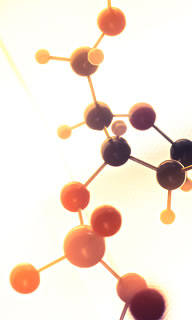Recent News & Events
Bluebird Bio Develops Gene Therapies to Address Health Issues
25

Bluebird Bio, a clinical biotechnology specialist firm dedicated to groundbreaking gene therapy discoveries for acute genetic and orphan disorders, developed and utilized its gene therapy to help transform the lives and well-being of patients with a rare genetic blood disease called beta-thalassemia.
Beta-thalassemia is a genetic blood disorder that decreases the needed red blood cell (RBC) count and normal production of hemoglobin – iron-enriched protein in the RBCs responsible for oxygen transport – that leads to oxygen deficiency in many parts of the body. Common symptoms of this disease include abnormal blood clots, severe anemia, skin and /or eye discoloration, and enlargement of organs such as the heart, liver, and spleen. This genetic disease also requires frequent blood transfusion to patients as part of the treatment process.
In the experimental gene therapy study, Bluebird Bio utilized the genetically modified HIV (human immunodeficiency virus) called “lentivirus” to replace the impaired beta globulin in the gene stem cells. This gene therapy was administered to two patients who do not need blood transfusion upon completing twelve days of treatment. A patient who’d undergone the same treatment was successfully treated but the positive result took time to show that the patient required blood transfusions in the first year of the said treatment.
According to a physician involved in Bluebird Bio’s gene therapy study, there are a few adverse effects to the treatment, and high cholesterol is one health issue that they’re working on. The same team of scientists claimed that in modifying the liver gene function, they are finding ways to eliminate the need for daily pills against cholesterol with just one injection to reduce the risk of heart attack.
In other news, genomic scientists from the Harvard Stem Cell Institute and University of Pennsylvania have successfully administered a gene called PCSK9 in mice to regulate their cholesterol levels. Lipid levels in mice have been found to decrease by 35 to 40 percent during the process, which showed a permanent change in the mice’s genomes. However, while the gene therapy worked well with mice, its effect on humans is still in question.
This genome-editing technique used in the gene therapy experiment was introduced 18 months before as part of a two-part genome-engineering method. This approach targets the DNA sequence and breaks into it, providing access to the replacement process. Part two of this technique involves a direct observation of the replacement of mice liver cells into human-derived liver cells, which then raises safety concerns in humans.
At present Bluebird Bio is looking to work on a gene therapy focusing on brain gene impairment wherein select viruses such as lentivirus, adenovirus and adeno-associated viruses can transport and function as potential vectors for treatments to the impaired brain genes.
Genomic science experiments such as this gene therapy discovery could go a long way in developing successful treatments for rare genetic disorders, and scientists require superior quality life science laboratory equipment and accessories to obtain accurate and reproducible results. As such, Discovery Scientific Solutions (DSS) offers a comprehensive line of leading edge life science laboratory supplies and equipment suitable for life science applications including genomics and cytology.
